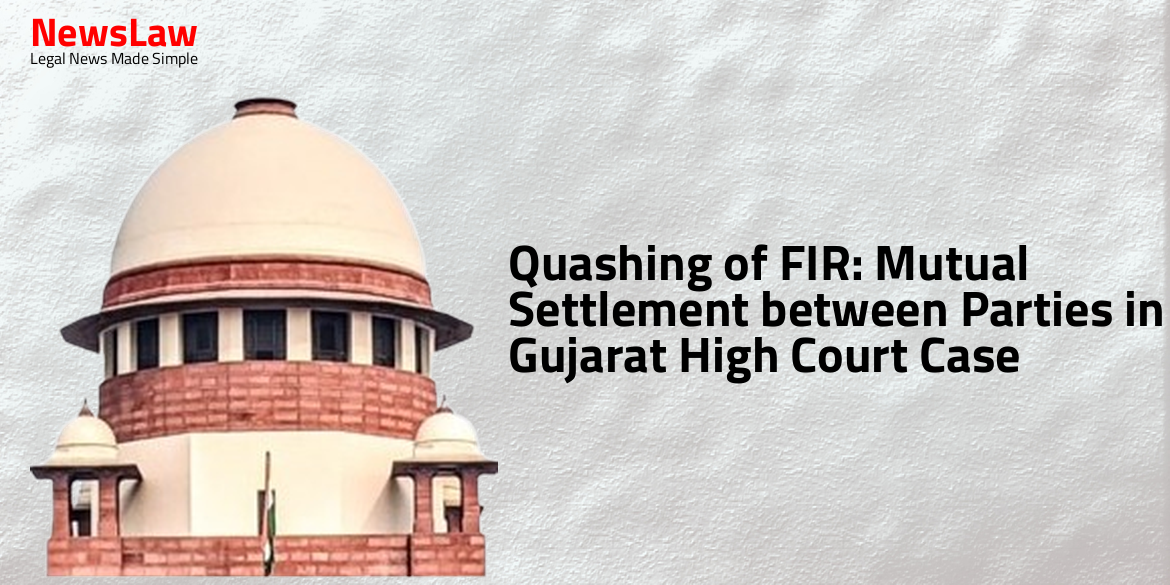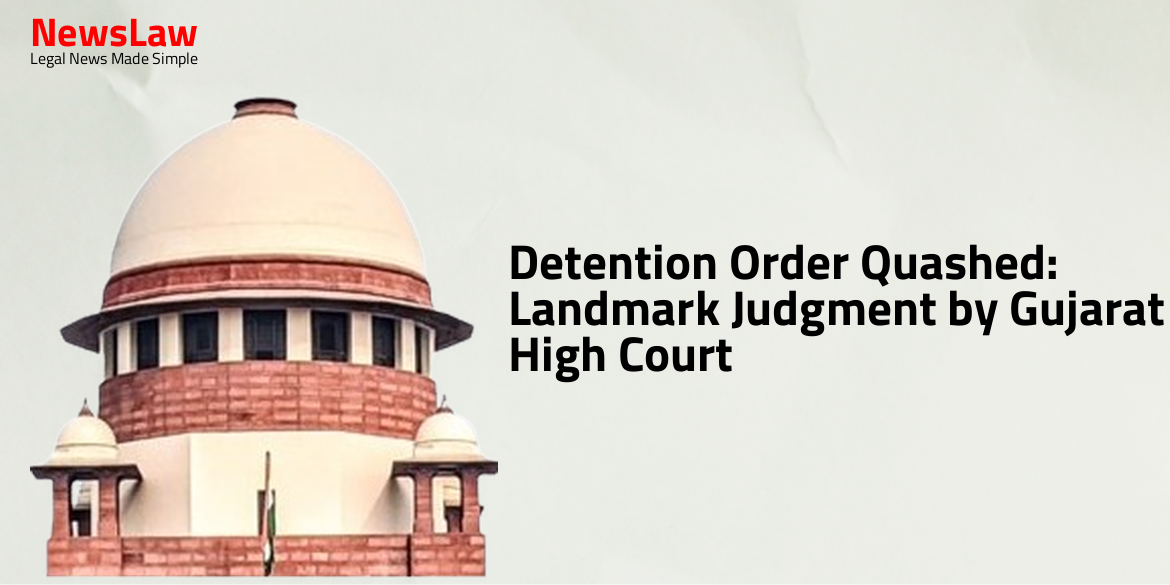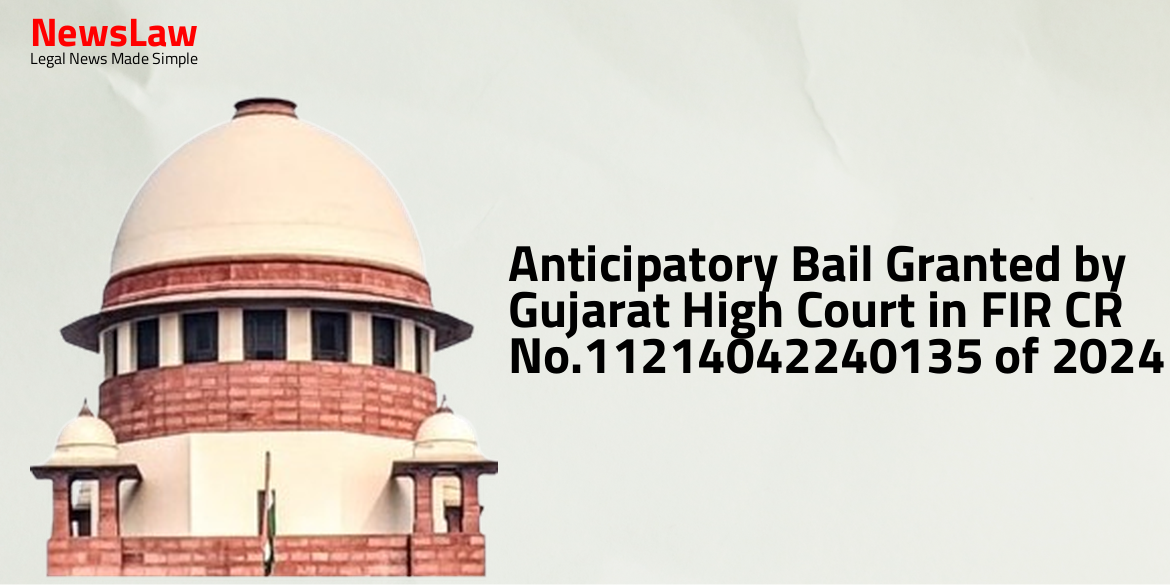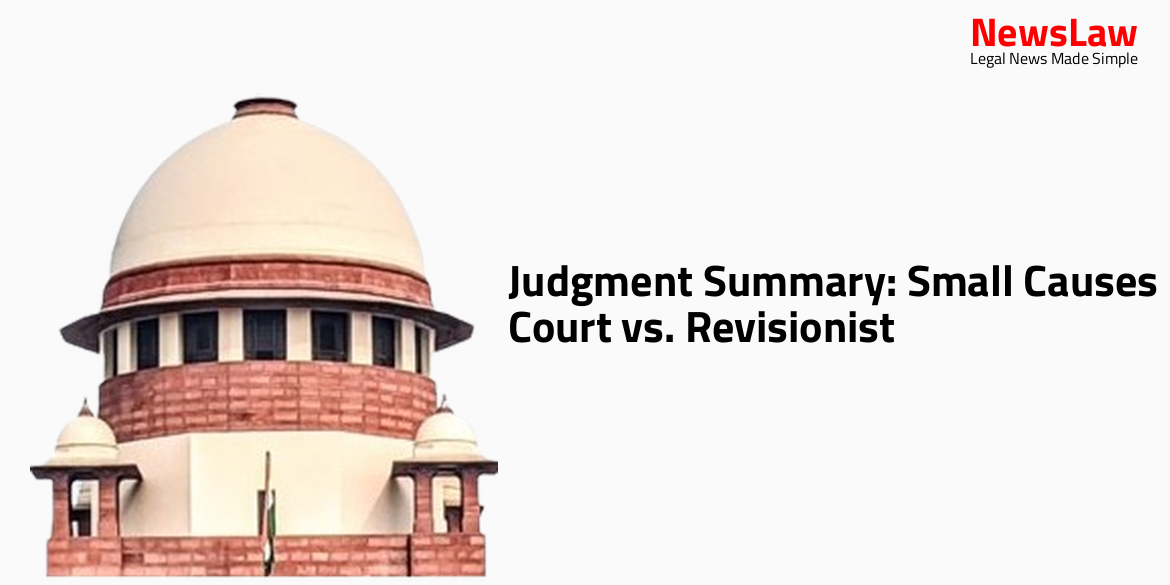In a significant development, the Gujarat High Court has quashed the FIR registered at Diyodar Police Station in District Banaskantha following a mutual settlement between parties. The case, which involved allegations of criminal breach of trust and cheating, has been resolved amicably as affirmed by the original complainant in an Affidavit. This judgment highlights the importance of using legal mechanisms to resolve disputes and avoid unnecessary proceedings. Learn more about the details of this case and its implications in our blog post.
Facts
- The petitioner has filed a petition under Section 482 of the CrPC to quash and set aside the FIR registered against them.
- The FIR was registered for offences under Sections 406 and 420 of the IPC.
- The parties have amicably settled the dispute during the proceedings.
- As per the mutual settlement, the original complainant has filed an Affidavit on 06.04.2024.
- The Affidavit is submitted as Annexure-B with the petition.
Arguments
- The original complainant, as per the Affidavit, has confirmed that the dispute with the petitioner has been resolved amicably.
- The original complainant has expressed no objection to quashing and setting aside the present proceedings as there is no remaining grievance between the parties.
- Learned advocate Mr. Romesh C. Niven has sought permission to file his Vakalatnama on behalf of the original complainant, which has been granted.
Analysis
- The impugned FIR was filed at the instance of the complainant who alleged criminal breach of trust and cheating by the petitioner for not repaying a loan within stipulated time.
- The complainant initially filed a complaint only against property dealers, with no mention of the petitioner.
- Subsequent complaints included the petitioner’s name, evolving the allegations.
- Exercise of caution is necessary while using Section 482 of the CrPC to ensure sound principles are followed.
- The inherent power should not be used to suppress a legitimate prosecution.
- The High Court should avoid making a prima facie decision when facts are incomplete and issues are of significant magnitude.
- The continuation of trial after mutual settlement between parties would be futile.
- Merely an allegation of failure to keep a promise is not enough to initiate criminal proceedings.
- The complaint leading to the FIR was filed three years after the last date fixed for registration of the sale deed.
- Allowing the proceedings to continue would be an abuse of the court process.
- The Supreme Court has outlined conditions where there is no sufficient ground for proceeding against the accused.
- To establish an offense under Section 420 of the IPC, there must be dishonest inducement to deceive in property delivery.
- A breach of contract does not warrant criminal prosecution unless fraud or dishonest intent is shown at the beginning.
- The High Court has discretionary powers to quash proceedings at any stage.
- The settlement between the parties has been affirmed, and further criminal proceedings would only lead to unnecessary harassment.
- Criminal courts should not be used to pressure parties in settling civil disputes.
Decision
- The impugned FIR with CR No. 11195017240172 of 2024 registered at Diyodar Police Station, District Banaskantha is quashed and set aside for the petitioner.
- All consequential proceedings related to the FIR are also quashed specifically for the petitioner.
- If the petitioner is currently in jail, they are to be released immediately unless needed for any other case.
Case Title: AJABHAI PARMABHAI PATEL Vs. STATE OF GUJARAT
Case Number: R/CR.MA/8684/2024



